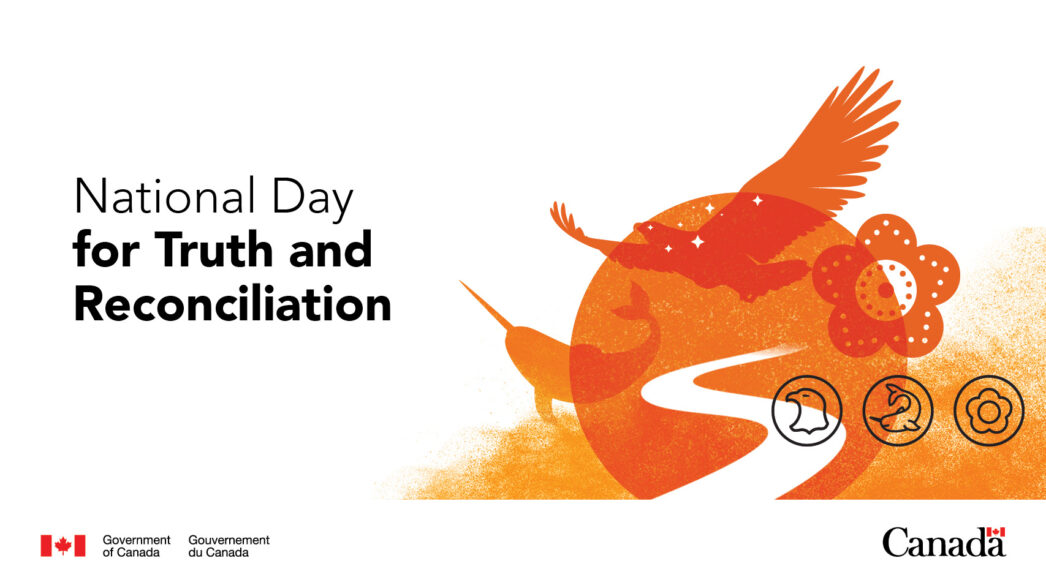Tomorrow, September 30, is recognized in Canada as the National Day for Truth and Reconciliation (also known as orange Shirt Day). In celebration of this day, we wanted to highlight some activities taking place in partnership with CanFASD.
Weaving, Beading, and Braiding
In 2019, CanFASD entered into a collaborative agreement with Australian FASD researchers to share information and work together on projects involving FASD. A special clause in this agreement spoke to the importance of Indigenous-led work in this field. Together, we committed to working together to support Indigenous-led research.
One of the outcomes of this sharing has been the development of the annual Weaving, Beading and Braiding live webinars that focus on Indigenous involved or led FASD initiatives. Organized by CanFASD and NOFASD Australia, these events are planned by a committee made up of folks from both countries. The title Weaving, Beading and Braiding (WBB) came about as we recognized that these tasks are held by Indigenous peoples around the world and was a great symbol of the collective nature of this work.
While we understand the widespread value in such events, these webinars are invite-only to encourage in-depth learning and collaboration within our two organizations and amongst key stakeholders.
Our Inaugural Weaving, Beading, and Braiding Event
The first WBB event organized by CanFASD and NOFASD Australia invited a committee made up of folks from each country to do the planning. Hosts and committee members, Nicole Hewlett and Melissa Tremblay, designed a format that would work on Zoom and bring interest to this work. Nicole is an Aboriginal women and a researcher in public health and FASD from Australia. Melissa is a Metis Women and a community based researcher at the University of Alberta, as well as CanFASD’s Indigenous Advisor.
The first WBB webinar in 2021 was ambitious with three presentations and two breakout discussions in a two-hour period. We learned about the “From Lililwan to Bigiswan Kid: Aboriginal led research on FASD and Early Life Trauma in the Fitzroy Valley Western Australia” that develop a community-based project to track prevalence of FASD while diagnosing and supporting families. This was presented by some of our community participants in Australia. It was very early in the morning there and they were facing extreme heat warnings.
The next presentation was given from Canada from an Indigenous group developing an early years project to build healthy communities. In complete contrast to the previous presentation, this presentation was given from a vehicle while traveling through a Canadian snowstorm! The last presentation was from Drs Dorothy Badry and Robyn Williams on their collaborative research with youth with FASD in both countries.
2022 Weaving, Beading, and Braiding Event
The second year, the team decided that a conversational style of presentation was more in line with an Indigenous yarn. This year’s event included researchers from Australia – Drs Robyn Williams and Michael Doyle who spoke about the challenges of youth with FASD in the criminal justice system. Canada followed with highlighting 2 unique projects from coast to coast – the Eastern Door FASD diagnostic and community support project in Elsipogtog First Nation, New Brunswick; and the newly developed not-for-profit organization, Piruqatigiit Resource Centre, in Nunavut.
2023 Weaving, Beading, and Braiding Event
And in 2023, we recently held the third event which continued the conversational style presentation. An Indigenous man who was recently diagnosed with FASD and shared some of his experiences. This was followed by a unique project in Alberta, Canada focusing on the strengths of the Metis Culture to support individuals with FASD, their families and communities.
Every webinar has been live and held space for some small group discussions to build our networking capacity and our understanding together. We are eager to support a 4th webinar in 2024 to continue learning together and seeing the progress being made in this field.
Indigenous Resources
CanFASD has also recently launched an Indigenous resource page on our website. It highlight articles and resources written from an Indigenous perspective on FASD that may be of interest to those working in this field. It intended to provide a collection of resources that have particular relevance to Indigenous peoples.
FASD among Indigenous peoples is the result of a unique set of historical and ongoing colonial systems, policies and practices. We also acknowledge that many Indigenous peoples have led efforts to resist these colonial circumstances, and to push back against deficit-focused narratives. This webpage is intended to highlight resources that provide examples of culturally safe practice, uplift Indigenous-guided work, and foster understandings that begin to address the structural health inequities that impact Indigenous peoples and communities.
As Canadians, including those at CanFASD, it is important to take the time to reflect on the harms to Indigenous People in both the past and present. We are trying to walk the path of reconciliation by learning and doing better, however, we will stumble. We remain humble and hope to be guided by these collaborations and teachings.

